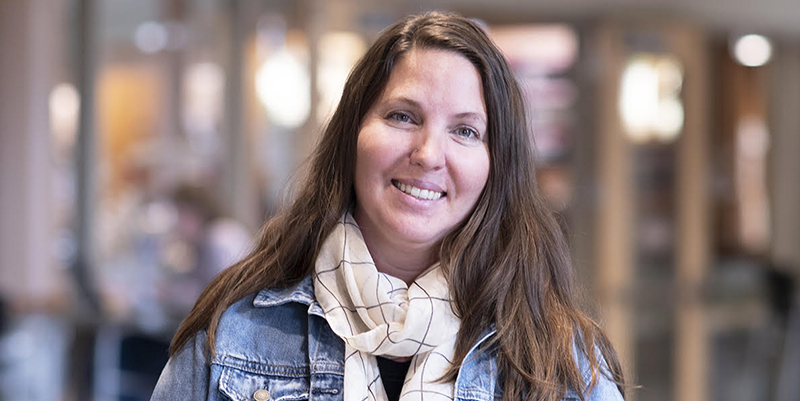About half of the county’s children experience at least one traumatic event before the age of 17. These adverse childhood experiences—known as ACES—include experiencing or witnessing violence, living in poverty or having a parent incarcerated.
More states are stepping up to implement trauma-informed education based on robust professional development standards, and some are even encouraging trauma-informed practices through state policy.
Jennifer Jorgenson, LICSW, is teaching The Trauma Lens, an online UVM graduate course that focuses on working with children, youth and families who have experienced trauma and adversity.
“There’s a need for having a greater understanding of trauma and the core concepts of being trauma-informed,” says Jorgenson, a certified parent-child interaction therapist and trainer, and trauma-focused cognitive behavior therapist. “There’s a deep brain science of the developmental impact of trauma that not everyone is completely aware of.”
Jorgenson’s course is part of a 9-credit trauma-informed course sequence for graduate students, teachers, social workers, counselors, and other health and human service professionals. The Trauma Lens is a foundational learning course designed to help in-service and pre-service professionals in child welfare, health/mental health, and schools gain a common language and knowledge base that will support the use of collaborative, family-engaged, and trauma-responsive practice.
Preparing Schools to Mitigate the Effects of Trauma
A recent study from the nonprofit organization Research for Action in Pennsylvania says about two out of every three school-age children are likely to experience at least one traumatic event, such as abuse, neglect or exposure to violence, by age 17.
The effects of traumatic stress can include negative impacts on cognitive, academic, and behavioral outcomes, yet many schools lack the staff and systems necessary to meet the needs of students who have experienced trauma.
Although further research is needed, trauma-informed education shows promise in preparing schools to help mitigate the effects of trauma on students, according to the study.
Trauma-Informed Practices Program
UVM’s Trauma Lens course, offered in the summer and fall, is the first in the sequence, followed by courses that focus on strategy and implementation.
Taken individually or as a sequence, the program will focus on learning applied approaches to working with children, families and communities affected by trauma and adverse life experiences and allow participants to:
- Learn how to build trauma-informed, resilience-fostering schools and organizations that can enhance academic success, social-emotional well-being and positive youth development.
- Gain new skills that harness interdisciplinary collaboration to build resilience and impact trauma and adversity.
- Build a toolkit of evidence-informed strategies for effectively engaging children, youth and families within and beyond school walls.
- Earn credits that may be applied to graduate degrees in education or social services at the University of Vermont.
“At a basic level, being trauma-informed is understanding what trauma is, the impact of trauma, and being aware of how we interact and provide services and support,” Jorgenson says. “It’s not about making assumptions, but being aware of the prevalence of trauma.”
Register for the UVM Trauma-Informed Practices Sequence




